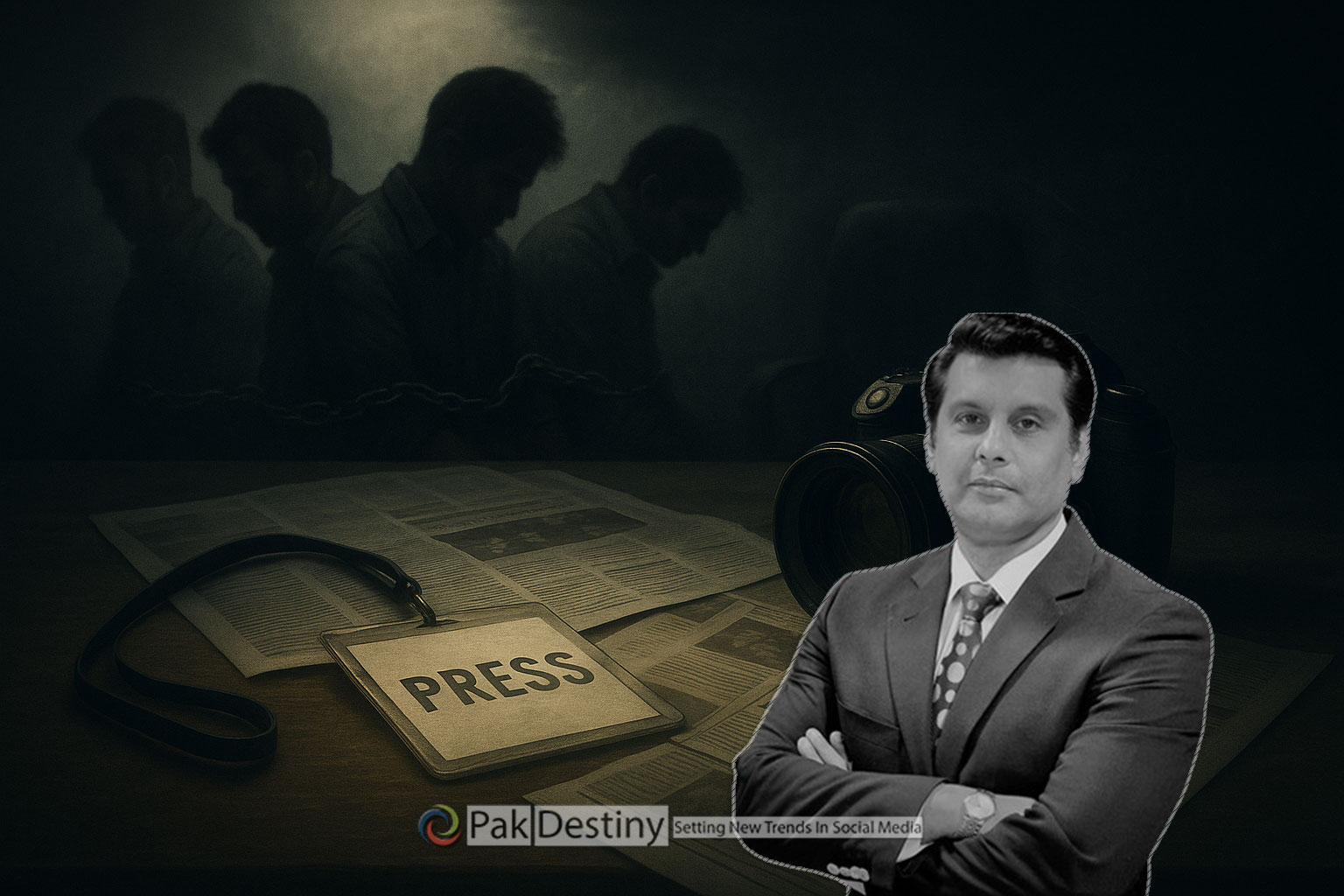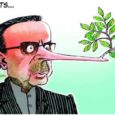
— The harassment of journalists has indeed taken on new hues, in recent years
By Raza Ruman
“This past week was Arshad Sharif’s third death anniversary. Back in 2022, he was killed under mysterious circumstances in Kenya, far away from Pakistan. That year was a chaotic one in Pakistan, chaos which is easier to ascribe to politics than to point out more uncomfortable truths; and it also claimed Arshad Sharif’s life,” Dawn columnist Arifa Noor writes.
Once the grief and horror over his death passed, the conversation returned to prosaic matters such as inquiries, commissions and justice.
“I call them prosaic because when journalists die in Pakistan, everyone pushes earnestly for answers, despite knowing that justice will never be done and no one will be held accountable. The same storyline was faithfully adhered to this time around. In the three years since, we have seen journalist organisations promising — politician-like — to push for investigations, as well as politicians and also other powerful people. Some promises were made publicly and some in secret but none were fulfilled. Three years on, very few questions have been answered.”
شہید جرنلسٹ ارشد شریف کی والدہ کے انتقال کا سن کر دلی رنج ہوا۔ ایک دکھی ماں اپنے بیٹے کیلئے انصاف مانگتے دنیا سے رخصت ہو گئی۔ انا للہ وانا الیہ راجعون۔
— Moonis Elahi (@MoonisElahi6) October 26, 2025
نڈر صحافی ارشد شریف کا آج تیسرا یوم شہادت ہے۔ اللہ تعالی ان کے درجات بلند فرمائے اور ان کے قاتل اپنے سفاک جرم کی سزا پائیں، آمین۔ pic.twitter.com/WmVF8JpOTx
— Moonis Elahi (@MoonisElahi6) October 23, 2025
Arifa Noor further says but such tragedies are the norm in Pakistan. Here popular leaders are given the death penalty, others are targeted by militant groups and those from the smaller provinces are even disappeared. It is no wonder then that journalists are not treated more kindly. Just in the past couple of decades, Hayatullah was disappeared and killed in what was then Fata; Saleem Shahzad was disappeared and found dead near Islamabad and Wali Khan Babar was targeted in Karachi — just to name a few. Three years ago, it was Arshad Sharif.
“But his death seemed to and continues to feel like a turning point. Partly because it came in a year that was a turning point in so many ways, but also because of the manner in which it happened. Before Arshad Sharif, many of us were always bystanders to the violence which affected one of our own. The threats that came before, the harassment that Babar or Shahzad faced was usually limited to a close circle but with Arshad Sharif it played out like a film. The FIRs, the letters he wrote, his exit from the country, his resignation from his job and then his vlogs, we all had a ringside seat to the events,” Noor writes.
What journalist colleagues in smaller towns and cities go through is hard to even imagine.
Equally, what made it a turning point was that his death told us journalists that borders now no longer keep us safe. To be accurate, the message had been sent earlier with the death of Sajid Husain in Sweden in 2020 — but Arshad Sharif’s demise in Kenya emphasised it more. It is no longer necessary that once the borders of Pakistan are crossed, threatened journalists will be able to breathe freely. Once this was a guarantee of safety but not anymore. Despite this, many others from the community have left the country and settled abroad.
آج کے لفافہ صحافت کے لیے بہت بڑی مثال جنہوں نے حقیقی آزادی کی تحریک میں اپنی جان قربان کر دیں @MoonisElahi6
— Noor_samand (@Noorsam75667735) October 23, 2025
ہمارا خون بھی شامل ہے تزئین گلستان میں
— Raazgar (@raazgaar) October 23, 2025
ہمیں بھی یاد کر لینا چمن میں جب بہار آئے
ارشد شریف شہید۔۔#شہید_حق_ارشد_شریف pic.twitter.com/FfBVg8guki
“And for multiple reasons, journalism and the ability of journalists to do their job has been in a free fall since 2022; it was not much better before it either but the speed at which the environment has become worse is increasing. So much has been written about this already that little can be added to it. But as our job is sometimes to state the obvious, let me point out that this past week, as Arshad Sharif’s death anniversary was being commemorated, Matiullah Jan, another colleague from Islamabad, was in the news because the ludicrous case against him for ‘attacking policemen’ while ‘under the influence’ and for ‘possession’ of heroin was also proceeding. News reports say he will be indicted on Oct 31. The allegations are so ridiculous that even those in the government cannot defend them but the case goes ahead, for we now live in times better suited for magical realism than the real world,” Noor says.
So even as the case will progress, we will complain and yet be grateful that Matiullah Jan was thus accused and is out on bail. At least, he was produced in court after being formally charged, even as he has every right to be angry about the indignity of this case and also hear the inanities uttered by those who claim to lead and represent us.
The harassment of journalists has indeed taken on new hues, in recent years. Just in the past year, Matiullah and Asad Toor both lost access to their bank accounts as did others around them.
Friends, relatives and even ordinary vendors they interacted with, everyone paid the price for having pesky journalists in their lives. “There are others also in a similar predicament. What colleagues in the smaller towns and cities go through is hard to even imagine, as most of us in Islamabad worry about the next red line we are told not to cross; the next big event that is not to be covered; or express horror at the next colleague to be banned from the airwaves.
And if there is any outrage or protest, the reply comes in the shape of a lecture on good or bad journalism and the difference between a good journalist and a propagandist. As if somehow, the label of a bad journalist justifies kidnapping, criminal cases, disappearances and death.
“In the midst of all this, some journalists last week did remember Arshad Sharif’s death and the justice he and his family continue to be denied. As occasionally a voice is raised for Saleem Shahzad or Nazim Jokhio. The list was long before Arshad Sharif’s name was added to it and it will keep growing. But whether those in power ignore the issue or speak of it only to deflect the matter, what they don’t realise is that in the people’s imagination the culprits were identified long ago. When the truth is withheld and the facts obscured, the people’s court doesn’t wait forever to make its own judgement. These judgements have little need for an order from the Supreme Court or an inquiry commission. *For ordinary people, they have already reached their decision in Arshad Sharif’s case. And it will not be easy to change their minds,” Arifa Noor says.






